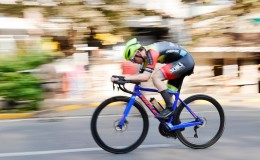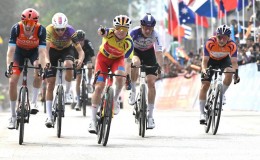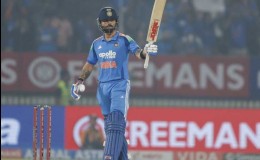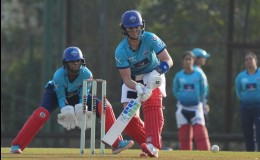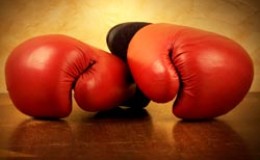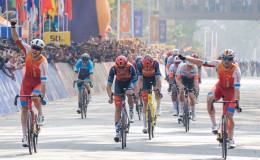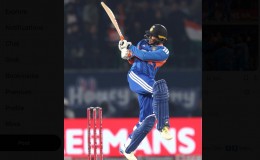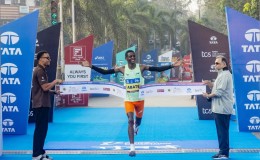Diego Maradona in his column in The Times Of India writes that though defending champions Spain has the chance to repeat their feat in the Euro Cup, nevertheless Germany are his favourite this time. “Defending champions Spain won four years ago in Austria and Switzerland, then followed it up with the World Cup win in South Africa in 2010. The incredible generation of Puyol, Xavi, Iniesta, Ramos, Casillas, Villa and all have the chance to repeat their crown with an unprecedented triple if they are to win again. But hot rivals Holland, Germany, England and Italy will do their best to upset their dominance.”
Meanwhile another article in TOI says that French playmaker Franck Ribery had a sense of humour failure here on Thursday when he was asked what he thought of UEFA president Michel Platini’s joke that France could win the Euro 2012 title if they got off the bus. Platini’s remark at his press conference on Wednesday was in reference to the French debacle at the 2010 World Cup finals in South Africa which reached its nadir when the squad went on strike in protest at the expulsion of Nicolas Anelka and stayed on the bus.
However, Ribery, who was one of the senior players in that squad, did not evidently find the remark amusing and even less so to be asked his reaction to it. “You think I want to answer that question?” he replied frowning at the questioner. “I have no desire to answer this question.”
Meanwhile a report in The Indian Express says that Poland and Ukraine have the opportunity this month to promote sport in its best light, and both countries hope that the trade-off in terms of new infrastructure and political and economic influence is what they bargained for when they bid five years ago to jointly hold Europe's championship, beginning on Friday.
This is ground-breaking stuff, following in the footsteps of the 2010 World Cup in South Africa and the 2008 Olympics in Beijing. The 16-nation UEFA tournament is about to be staged in two neighbours of the former Soviet bloc, held for the first time by nations that during the Cold War were beyond what the West called the Iron Curtain.
Matches at this Euro will be played at sites as many as 2,000 kilometers, or 1,250 miles, apart, in eight cities ranging from the Polish Baltic Sea port of Gdansk in the north to Donetsk, near Ukraine's southeastern Black Sea coast. Poland is a member of the European Union, while Ukraine, farther to the east, remains closer to Russia and is emerging more slowly from communism. When their bid was selected in 2007, neither of these countries could have foreseen the global economic recession. Yet their contract with UEFA, European football's governing body, locked them into expensive new stadiums, roads, railroad improvements, airports and hotels.
The eight Euro stadiums alone cost about $3 billion. Ukraine now has new high-speed trains, but its bill for Euro 2012 has escalated beyond $13 billion, half of it financed by the state.

